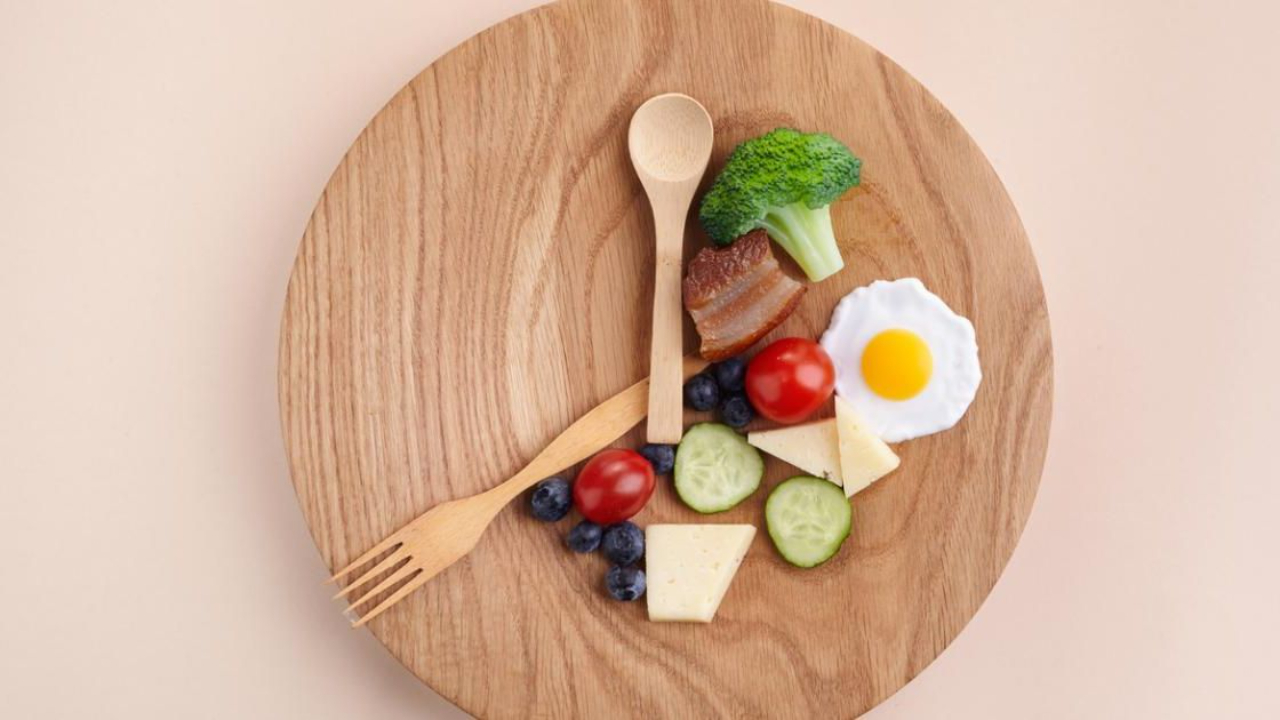The Timing Diet: Why When You Eat Matters More Than You Think

Eating on Time: How Chrononutrition Can Reshape Your Health
You’ve counted calories. You’ve tracked macros. You’ve tried intermittent fasting, paleo, keto, and maybe a juice cleanse or two. But what if the missing piece in your health journey isn’t what you’re eating—but when?
Welcome to chrononutrition, the science-backed field that says the timing of your meals could be just as important as the content on your plate. And if you're feeling stuck, tired, or frustrated with your health despite doing "all the right things," this might be the gentle reset your body’s been waiting for.
What Is Chrononutrition, and Why Should You Care?
Chrononutrition is the study of how your body’s internal clock—your circadian rhythm—influences digestion, metabolism, hormones, and even how your body stores fat or fights inflammation. Think of it like this: your body is running on a 24-hour rhythm, and eating in sync with that rhythm can either optimize or disrupt how you feel.
This isn’t pseudoscience—it’s rooted in chronobiology, a field that studies how biological systems are influenced by time and light. Every major organ, including your digestive tract, liver, pancreas, and brain, runs on a schedule. When we eat outside that schedule—like late at night—it can throw everything off.
And we’re not just talking sleep. We’re talking mood, hunger cues, energy dips, even weight gain.
The Morning Advantage: Why Timing Matters
Your body is naturally primed for digestion in the first half of the day. That’s when insulin sensitivity is highest, making it easier to manage blood sugar and convert food into usable energy rather than storing it as fat.
Eating a big meal at 8 a.m. triggers a much healthier metabolic response than eating that same meal at 9 p.m. Studies show that front-loading your calories early in the day can improve:
-
Blood sugar control
-
Energy levels
-
Appetite regulation
-
Weight loss outcomes
One study found that participants who consumed their largest meal at lunch lost more weight and had better insulin sensitivity than those who ate the same calories primarily at dinner. That’s not a coincidence—it’s chronobiology in action.
Your Gut Has a Clock, Too
Here’s where it gets even more fascinating: your gut microbiome—the community of bacteria that influences everything from digestion to mood—also follows a rhythm. It thrives on predictable meal times.
Erratic eating, late-night snacking, or skipping meals altogether can throw your gut into disarray, increasing inflammation, impairing digestion, and even impacting sleep. That’s right: a midnight snack might not just disturb your blood sugar—it could mess with your dreams, too.
Chrononutrition helps synchronize your gut and your brain, supporting digestion, energy, and even mental clarity.
What Happens When You Eat Late?
We've all been there—scrolling TikTok at midnight with one hand in a chip bag. It feels harmless, maybe even deserved. But consistent late-night eating has been linked to:
-
Increased blood sugar levels
-
Disrupted sleep quality
-
Poor appetite regulation the next day
-
Heightened cravings for ultra-processed foods
-
Weight gain over time
Why? At night, melatonin levels rise to prepare your body for rest. Your digestive system slows down, insulin sensitivity drops, and your body is less efficient at handling food. Basically, you’re sending calories into a system that’s about to clock out for the night.
And if you’re thinking, “But I barely ate today—I'm just hungry now!” That’s part of the problem. Under-eating earlier often leads to overcompensation at night, creating a cycle that’s hard to break.
What About Intermittent Fasting?
IF fans, don't worry—chrononutrition isn’t anti-fasting. In fact, it supports some of its core principles: compressing your eating window and allowing the digestive system time to rest.
But here’s the nuance: skipping breakfast and eating your first meal at 2 p.m. may not be ideal for your metabolic rhythm. Many chrononutrition researchers suggest that early time-restricted feeding—eating within an 8–10 hour window that starts earlier in the day—yields more favorable results.
Translation: if you’re fasting, try eating between 8 a.m. and 4 or 6 p.m. instead of skipping your morning entirely.
The Real-World Struggle: What If You Work Nights or Have a Packed Schedule?
Let’s be real—not everyone lives in a wellness bubble where dinner happens at 5:30 p.m. sharp with a perfect protein-carb-fat balance. Between shift work, kids, social obligations, or just plain exhaustion, sticking to ideal meal timing can feel impossible.
That’s okay. Chrononutrition isn’t about perfection—it’s about awareness and alignment.
If you can’t eat early all the time, try to:
-
Keep meal times consistent, even on weekends
-
Avoid heavy meals 2–3 hours before sleep
-
Prioritize protein and fiber in your first meal of the day
-
Get morning sunlight to reset your circadian clock
-
Create a gentle nighttime routine to avoid mindless snacking
Even small shifts can help your body regain rhythm and balance.
Easy Ways to Get Started
Here are a few actionable tips to gently align your eating with your body’s natural rhythm:
-
Move your breakfast 30 minutes earlier if you usually skip it
-
Eat your biggest meal at lunch rather than dinner
-
Cut off nighttime snacking 2 hours before bed
-
Anchor your meals to consistent times, like after your morning walk or before your evening wind-down
-
Use sunlight as a cue—daylight = mealtime, darkness = digestive rest
This isn’t about rules. It’s about rhythm.
Eat With the Clock, Not Against It
Chrononutrition isn’t a fad—it’s a return to something primal. Long before apps and macros and trackers, our ancestors ate in sync with the sun. Today, we’re rediscovering what our bodies have known all along: timing matters.
So if your energy is crashing, your cravings are raging, or your sleep feels broken—don’t just check your macros. Check the clock.
Sometimes, the best change you can make isn’t what you eat. It’s when.
Written by: L.R. Marshall

